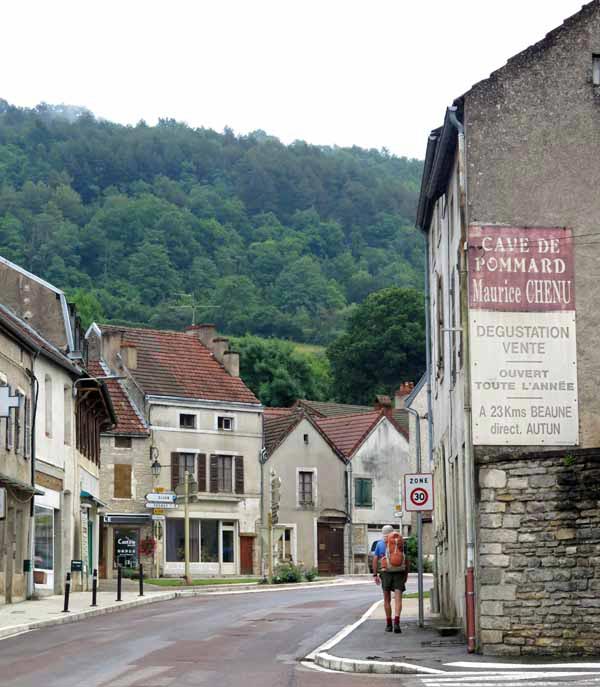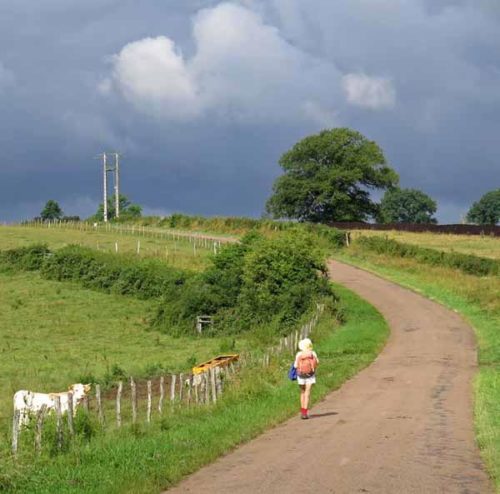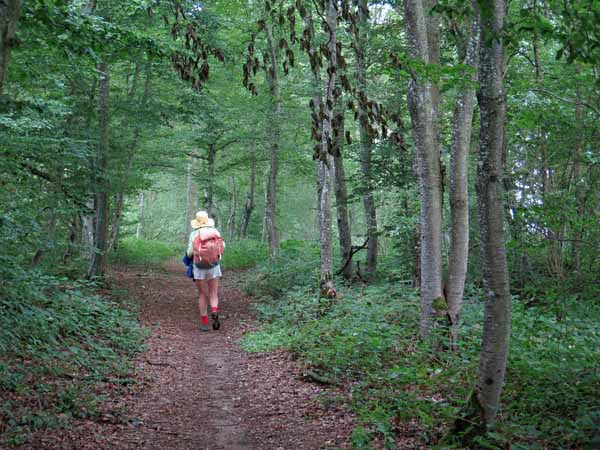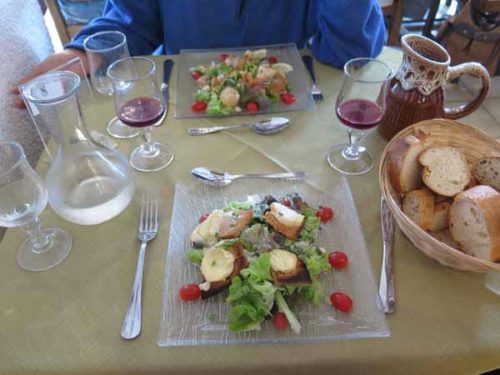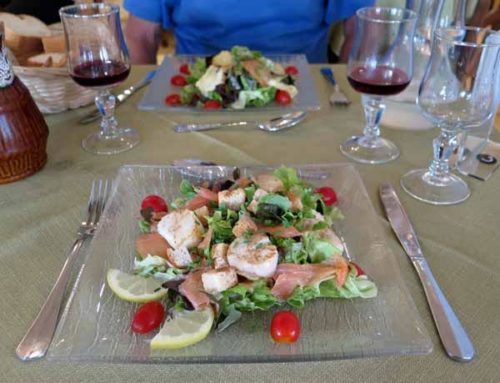Sunday, 2 July 2017
Distance 17 km
Duration 3 hours 25 minutes
Ascent 128 m, descent 116 m
Map 136 of the
Because of the absence of bars between Bligny and our destination for the day, we went back the half-kilometre into town (not in the direction we were going) before setting off seriously on our day’s walk.
As we walked up towards the main square, we saw the wooded ridge that we had traversed yesterday looming over the village like a benevolent guardian.
The boulangerie at the top of the square provided us with a bag of lovely things – two croissants, a pain aux raisins and an apple chausson – which we spread out on the hotel’s bar table with the coffee.
We did not expect any hardship on this day’s walk, so we took our time, finally leaving at about
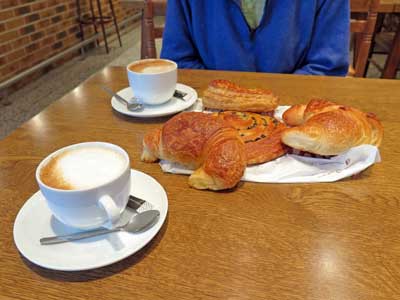
Retracing most of the way back to the camping ground, we veered off on the D33, past the supermarket and a few warehouses, then veered off again to the tiny hilltop village of Vic-des-Prés. We were worried when a mass of purple storm clouds loomed up, but they passed by without causing us trouble.
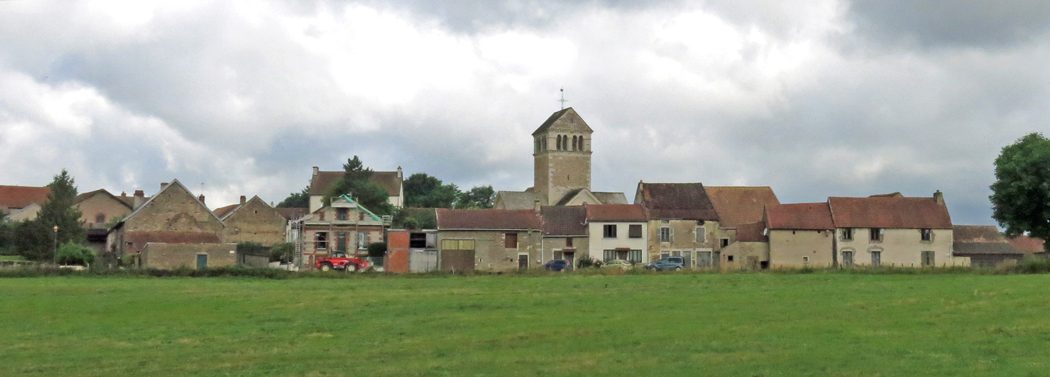
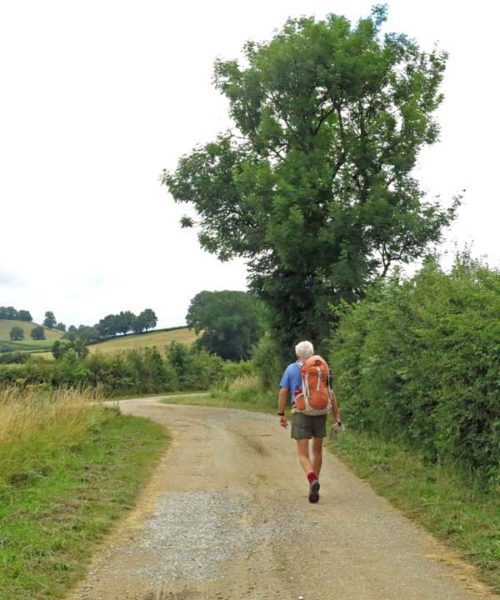
A couple of kilometres further on we came to an even smaller village, Bessey-la-Cour, and after that the bitumen ran out.
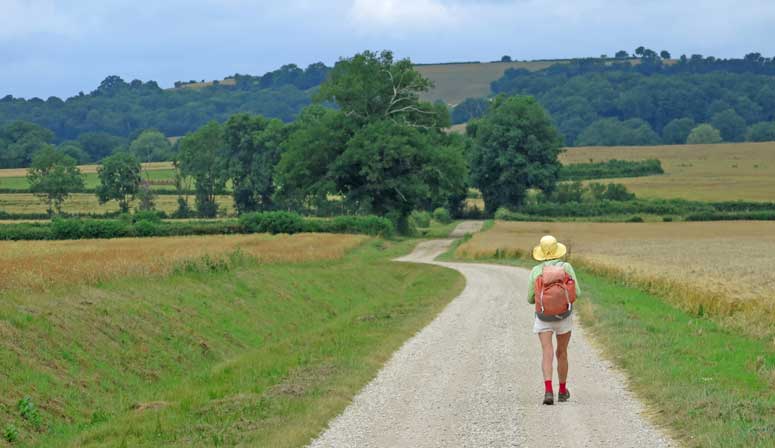
The white gravel road beyond was like a ribbon cast down carelessly across the sunlit fields, and we swung along at a good pace.
After a while we entered a thick wood and the track was hemmed in by unruly vegetation that would soon require a visit from the communal mowing machine.
Then we were in open country again and in due course found ourselves on a proper road, the D171, which descended towards the river Arroux, a couple of kilometres upstream from the village of Arnay-le-Duc that we were heading for.
We could see from the map that the road way was much longer than it needed to be. There was a path marked on our map which (if it still existed) would cut off a sharp corner and take us straight to the camping ground. So it was gratifying when this path duly appeared, weaving down through a strip of forest.
We began to hear voices, which we thought were other walkers, or picnickers nearby, but we saw no-one until we came out suddenly at a large lake full of waterlilies, with a footbridge conveniently straight ahead (this was the Étang de Fouché).
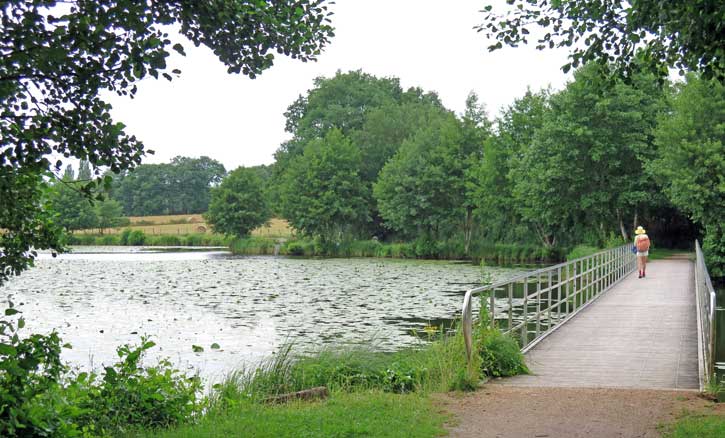
In the distance, at the other end of the lake, we saw a great crowd of people milling about in a sports field, the source of the chatter that we had heard earlier.
Once over the footbridge, we followed the path along the lake edge until we came to the camping ground, and eventually to the entrance, which was right next to the sports carnival.
The large reception building was open but unoccupied, so we wandered past it and chose a hedged enclosure with a good cover of grass.
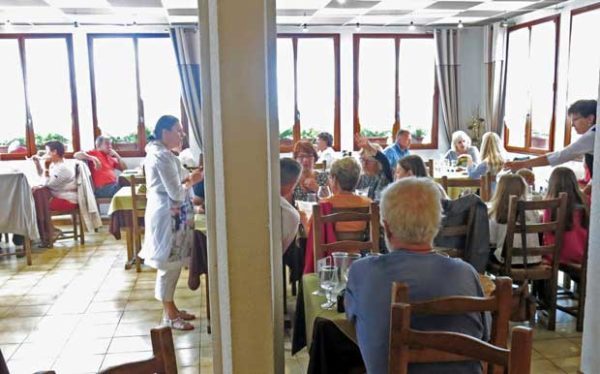
It was already 12:30 pm and we wanted to have lunch in town, so we hastily put up the tent, dumped our packs and hurried off.
Ten minutes later we were at the ring road of the village, looking at a tall old white-painted building proclaiming itself the Hotel du Dauphiné – Bar Restaurant.
We went inside but it did not look like a restaurant at all. It turned out that the restaurant was in a separate building, plain and flat-roofed, across a lane at the side.
Inside it was a busy scene, with families enjoying multi-course Sunday lunches. A group of English-speaking cyclists wanted to be served outside in the lane, as they were worried that their bikes would be stolen, but madame politely declined and they had to eat indoors. We had no such worries, as we had all our wordly goods with us, tucked under the table.
We examined the menu with interest, but as we intended to eat out again in the evening, we confined ourselves to a single course for lunch.
Keith, predictably, had a salade au chèvre chaud, while I had a ham and mozzarella salad. A basket of bread and a carafe of wine rounded out this little treat.
As the Hotel du Dauphiné would not be open in the evening, we asked the advice of our hostess, and she suggested that we walk around the ring road as far as the Logis hotel, and then go up and have a look at the top of the town.
We did this, finding no joy at the Logis (breathtakingly expensive, with fawning waiters), but at the top of the town it was much more to our liking. The streets splayed downward from the central square like threads of a rather messy spider’s web, and there were many charming towers and turrets sprouting from the rooftops. The Office of Tourism occupied what looked like a fairy castle.

Almost face to face across the square we found a bar (le Café de la Place) and a restaurant (le Café du Nord).
We went in to the Café du Nord and found that it would be open this evening, prompting Keith to lean over the counter and shake the hand of the surprised waitress (it is often hard to get a meal on Sunday nights).
We booked a table, then retired to the camping ground, had showers, did our washing, and stretched out on our mattresses for an afternoon doze. This was not at all disturbed by the constant excited babble of the children at the sports field nearby – in fact we found it restful.
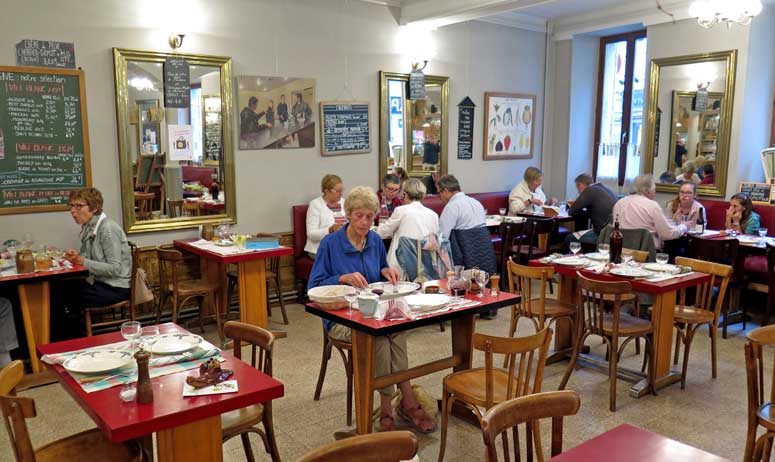
When we set off to town in the evening, the camping reception building was still empty, which was odd, as it was a private, not a municipal, establishment.
In the end, we never managed to pay for this night’s accommodation.
Crossing the bridge over the Arroux reminded us that, like many other places in France during the Revolution, the good burghers of Arnay-le-Duc had seen fit to change their aristocratic-sounding name for the duration, becoming Arnay-sur-Arroux until it was safe to revert.
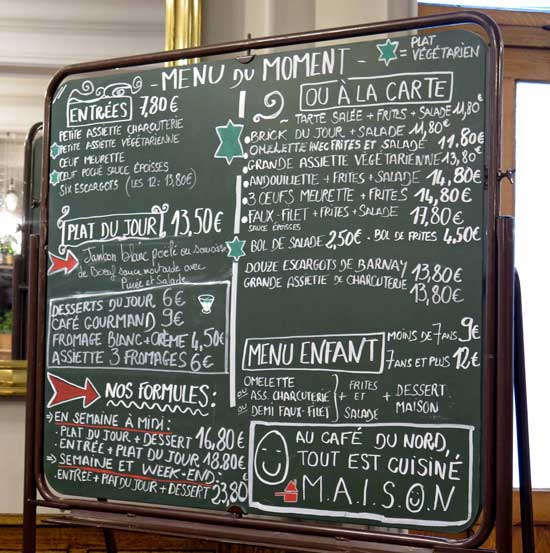
The Café du Nord, an old house with shuttered windows, occupied a sharp corner between two roads radiating from the upper square. The footpath at the front had a little apron of flowers, which gave the place a child-like air.
Inside it was like a big schoolroom, furnished rather plainly, with a bare floor and hard wooden chairs and tables.
The placemats looked as if they were really teatowels, the cutlery was mismatched, the faded linen serviettes were enclosed in assorted rings and the bread baskets were lined with handmade doilies.
The walls were covered with pictures, and there were large blackboards displaying the menu. We found it all delightful.
The place was full of diners, whose cheerful chatter gave the room a lively atmosphere.
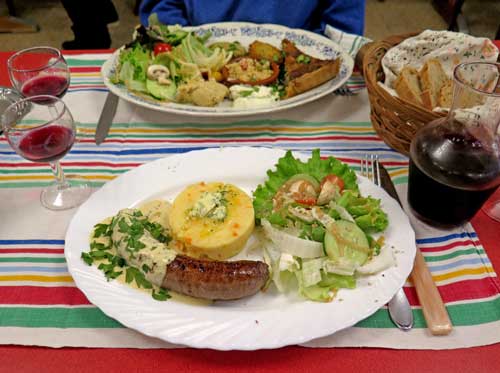
With the memory of our restaurant lunch still in our minds, we ordered a single dish each. Keith had the plat du jour, which was a huge beef sausage with mustard sauce, a vegetable purée and salad.
I took my chances with “grand assiette végétarienne”, which turned out to be a delicious assortment of salads, with quiche and a croquette of some sort.

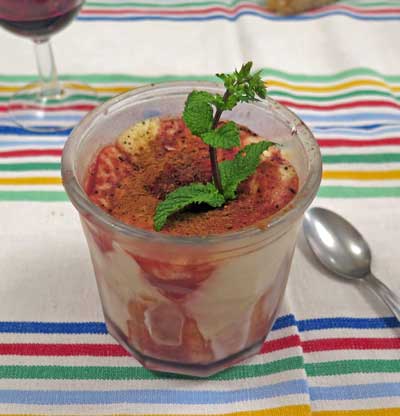
That was all so lovely that Keith decided to have a tiramisu as a final flourish, and it came in a glass jar, with a sprig of mint sticking up like an emergent seedling.
It was all downhill to the camping ground after that, and as usual we slept like logs in our little green home.
Previous section: St-Jean-de-Losne to Bligny-sur-Ouche
